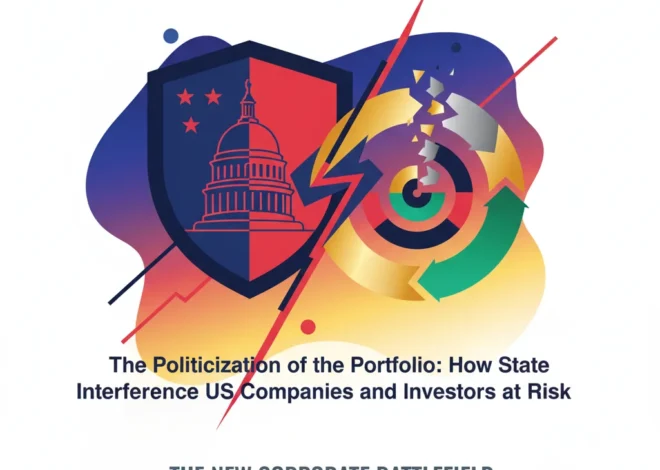
Sequoia’s Breaking Point: When Partner Politics Trigger a C-Suite Resignation
In the high-stakes world of venture capital, where billions are wagered on the future, the most disruptive force isn’t always a new technology—sometimes, it’s a clash of ideologies. This was starkly illustrated recently within the hallowed halls of Sequoia Capital, one of Silicon Valley’s most storied investment firms. The abrupt departure of Chief Operating Officer Sumaiya Balbale was not a result of market downturns or a flawed investment thesis. Instead, it was a principled stand, a dramatic exit triggered by the firm’s handling of controversial social media posts by one of its partners, Shaun Maguire. According to the Financial Times, which first broke the story, Balbale resigned after Sequoia’s leadership, led by Roelof Botha, opted not to discipline Maguire for his public comments targeting New York state assembly member Zohran Mamdani.
This incident is far more than internal boardroom drama. It’s a microcosm of a seismic challenge reverberating across the global economy and the world of finance: how do modern corporations navigate the treacherous intersection of personal politics, professional responsibility, and corporate identity in an era of profound polarization? For investors, business leaders, and anyone involved in the intricate dance of capital and culture, the events at Sequoia serve as a critical case study with far-reaching implications.
The Catalyst: A Tweetstorm and a Red Line
The controversy began not in a pitch meeting, but on X (formerly Twitter), the digital public square where opinions, both measured and volatile, collide. Shaun Maguire, a Sequoia partner known for his focus on deep-tech and a presence in the fintech and blockchain spaces, took aim at Zohran Mamdani. Mamdani, a prominent member of the Democratic Socialists of America (DSA), has been a vocal critic of Israel’s actions in its conflict with Hamas. Maguire’s posts reportedly accused Mamdani of antisemitism and criticized his political affiliations, tapping into one of the most contentious geopolitical issues of our time.
For Sumaiya Balbale, who had joined Sequoia as its first-ever COO just over a year prior, these posts represented a line crossed. Her decision to resign was reportedly rooted in the belief that Maguire’s comments constituted bullying and that the firm’s inaction was an implicit endorsement of such behavior. This wasn’t a simple disagreement over investing strategy or quarterly returns; it was a fundamental conflict over the values and culture of the organization she was hired to help lead. The firm’s decision to stand by its partner, likely under the banner of free expression, created a schism that the C-suite could not bridge.
This situation highlights the unique governance structure of venture capital firms. Unlike in a traditional corporation, partners are not mere employees; they are powerful stakeholders, brand ambassadors, and the primary interface with the founders shaping the future of financial technology and beyond. Disciplining a partner is a far more complex and fraught process, often testing the very fabric of the partnership’s cohesion.
Trump's Argentina Ultimatum: How One Election Could Reshape Global Finance and Investment
A Tale of Competing Principles
To understand the depth of the rift at Sequoia, it’s helpful to break down the competing perspectives and principles at play. Each party was operating from a position they likely viewed as justified, creating a classic impasse with no easy answers.
| Stakeholder | Stance / Action | Potential Rationale / Principle |
|---|---|---|
| Sumaiya Balbale (COO) | Resigned in protest. | A belief that the firm has a duty to maintain a safe, respectful, and inclusive culture. Perceived Maguire’s posts as targeted harassment that violated this duty, and the firm’s inaction as a failure of leadership. |
| Shaun Maguire (Partner) | Made public, politically charged comments. | A belief in the right to free speech and the importance of speaking out against perceived injustice (in this case, what he viewed as antisemitism). The perspective that partners can and should engage in public discourse as individuals. |
| Sequoia Leadership | Opted not to discipline Maguire, leading to Balbale’s exit. | A commitment to protecting partners’ freedom of expression, especially on political matters. A potential calculation that disciplining a partner for off-platform speech could set a dangerous precedent, chill discourse, and create bigger internal conflicts. |
On the other hand, their inaction had a clear and immediate cost: the loss of their COO. Balbale’s departure is a powerful signal to the market, and more importantly, to current and future employees. It suggests that the firm’s stated values around culture may not be fully enforced when they conflict with a partner’s autonomy. This creates a different kind of risk—a talent risk. In a competitive market for the best minds in finance and tech, a perception of a toxic or unsupportive culture can be just as damaging as a bad quarter. This incident forces us to ask a difficult question: In the modern corporate landscape, what is the ‘fiduciary duty’ of a leader? Is it purely to maximize financial returns, or does it now include the stewardship of a cohesive, psychologically safe culture that can sustainably produce those returns? The answer is no longer clear-cut.
The New Corporate Battlefield: Politics, Platforms, and Profit
The Sequoia episode is not an isolated event. It is a symptom of a broader trend where the traditional wall between the professional and the political has crumbled. Several factors are fueling this convergence:
- Social Media as an Accelerant: Platforms like X and LinkedIn give executives and investors a direct, unfiltered channel to a global audience. A single post can ignite a firestorm, forcing a corporate reaction within hours.
- Employee Activism: A new generation of employees expects their employers to reflect their values, not just on environmental or social issues, but on contentious political matters as well. Silence is often interpreted as complicity.
- The Politicization of Capital: The flow of money itself has become a political statement. Venture capital, by its nature, is an optimistic bet on the future, and disagreements about what that future should look like are now playing out in public. This affects every corner of the market, from banking to consumer tech.
–
–
We’ve seen other major players in the tech and investing world attempt to navigate this. A few years ago, Coinbase CEO Brian Armstrong famously declared the company would be “mission focused” and discourage political debate at work, offering exit packages to those who disagreed. While praised by some for its clarity, the move was criticized by others as a way to stifle important conversations about equity and justice. There is no universally accepted playbook, and every approach carries significant risk.
Decoding the Economy: What a Cryptic Crossword Reveals About Modern Finance
Lessons for the Modern Leader in Finance and Beyond
For business leaders, investors, and board members watching this unfold, the Sequoia case offers several critical, if uncomfortable, takeaways. The stability of the stock market and the broader economy depends on well-run, stable companies, and internal cultural fractures represent a real, tangible threat to that stability.
First, the absence of a policy is, in itself, a policy. Sequoia’s decision not to act was a de facto stance in favor of partner autonomy and free speech over a centrally enforced cultural norm. Companies must proactively define their approach to political speech by senior leaders. Waiting for a crisis to erupt is a recipe for reactive, inconsistent decision-making. This policy needs to address the nuances of different employee levels—the expectations for a C-suite executive or a public-facing partner are inherently different from those for a junior analyst.
Second, culture is not what you write on the wall; it’s what you do when you’re tested. Balbale’s resignation demonstrates that a senior leader felt the firm failed a critical test. This can have a cascading effect on morale, recruiting, and retention. A company’s greatest asset is its talent, and if that talent feels the stated values are hollow, they will walk—often to a competitor. As research from Harvard Business Review has shown, a toxic culture is a leading predictor of attrition.
Finally, the world of trading and investing must now account for ideological risk. When performing due diligence on a company or a fund, sophisticated investors are no longer just looking at the balance sheet. They are increasingly scrutinizing the leadership’s cohesion, the public personas of its key players, and its vulnerability to culture war skirmishes. A fund dominated by partners with highly polarized and vocal public views may be seen as carrying a higher level of headline risk.
Wall Street's Paradox: Record Bank Profits Meet Stark Bubble Warnings
Conclusion: An Unsettled Future
Sumaiya Balbale’s departure from Sequoia Capital is a watershed moment, a stark illustration that the most significant battles in the corporate world are increasingly being fought over values, not just valuations. The firm’s decision to back its partner’s right to expression over its COO’s plea for a different cultural standard has set a powerful precedent, the full consequences of which will unfold over time.
This incident leaves the world of finance, technology, and corporate governance with more questions than answers. Where is the line between personal freedom and professional conduct? How can firms foster both robust debate and psychological safety? And in an era of intense division, can any organization truly remain above the fray? The story of Sequoia is a clear signal that these are no longer theoretical questions for HR departments. They are urgent, strategic challenges that go to the very heart of leadership, identity, and the future of business itself.


